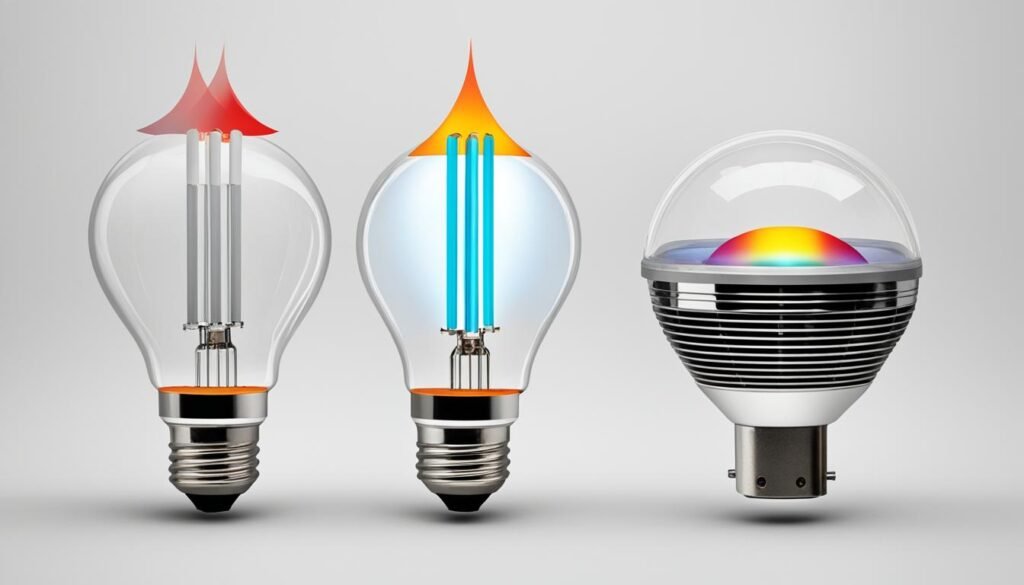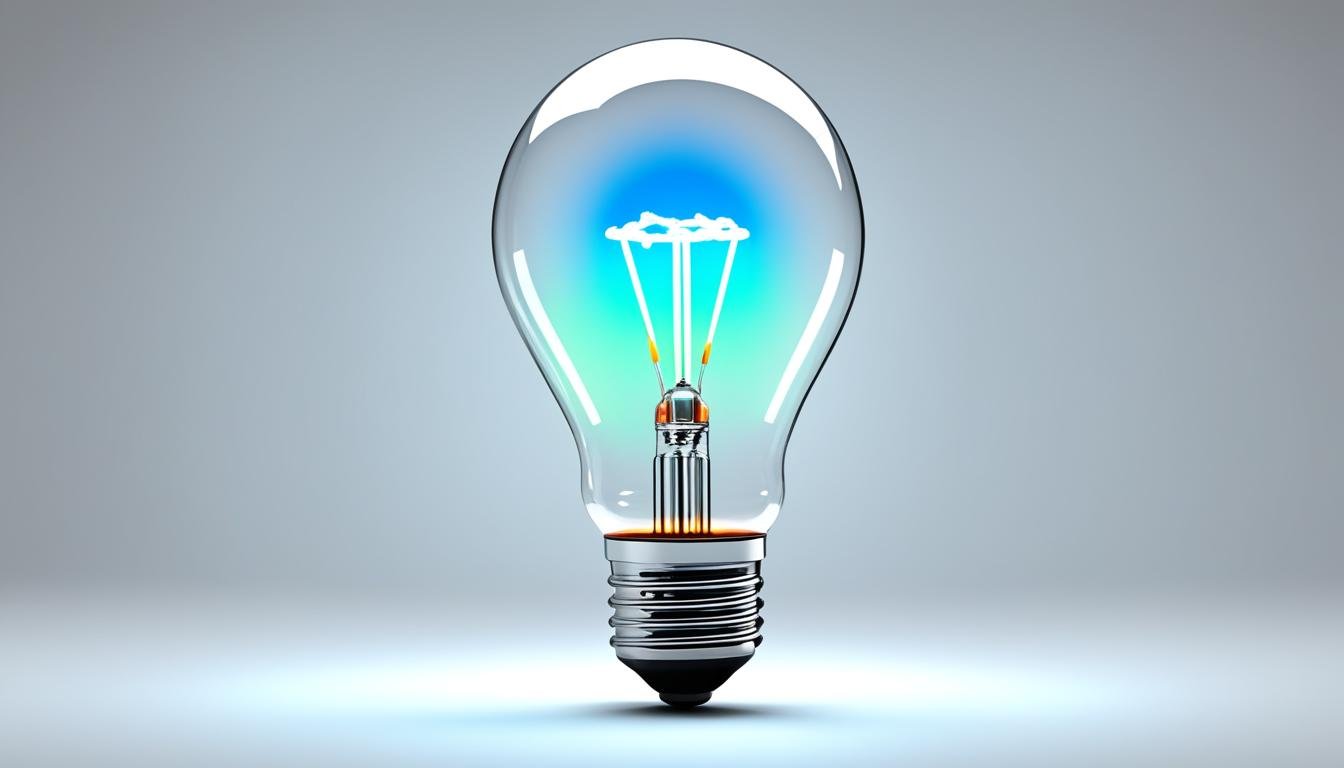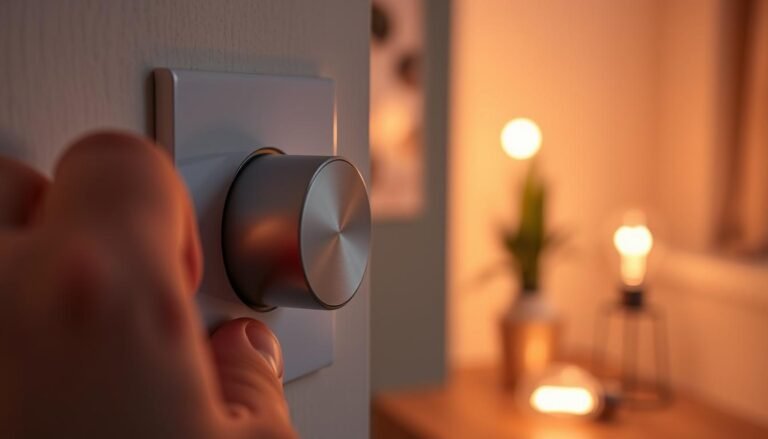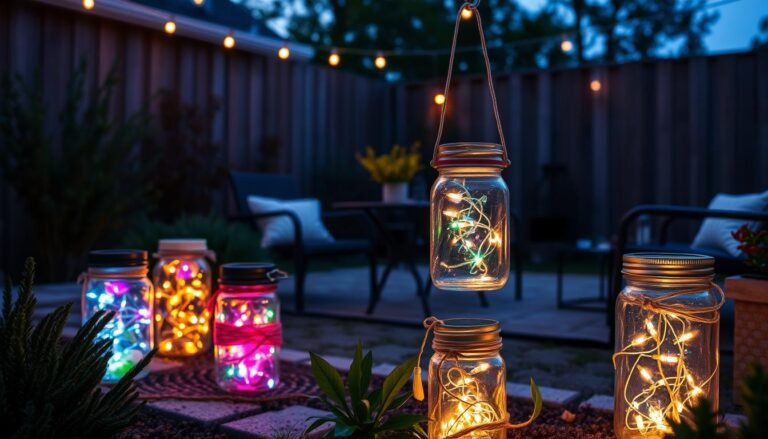Affiliate Disclosure: This post may contain affiliate links. If you make a purchase, we may earn a small commission at no extra cost to you.
When it comes to LED lighting, there are many benefits that make them a popular choice – from energy efficiency to long lifespan.
But have you ever wondered though, do LED bulbs get hot?
While it’s true that LED bulbs are known for being cool to the touch, there might be more to this question than meets the eye.
In this article, we will dive deeper into the topic of LED bulb heat output and reveal the truth behind whether LED bulbs actually produce heat.
So, let’s shed some light on this subject and explore the fascinating world of LED lighting!
Understanding LED Bulb Heat Output
Before discussing LED bulb heat output, it’s essential to understand the technology behind LED bulbs.
Check out our FREE Calculators on our Resources Page
What Is LED Technology and How Does It Work?
LED stands for Light Emitting Diode and is a semiconductor device that emits light when an electric current passes through it. Unlike traditional incandescent bulbs, LEDs produce light through a process called electroluminescence, which involves the recombination of electrons and holes in the semiconductor material.
Comparing Heat Generation: LED vs Traditional Bulbs
LED bulbs are known for their energy efficiency, but how does this translate to heat generation? Compared to traditional incandescent bulbs, LED bulbs generate significantly less heat.
Incandescent bulbs produce light by heating a filament until it glows, resulting in a substantial amount of wasted energy in the form of heat. On the other hand, LED bulbs convert most of their energy into light, minimizing heat generation.
Also Read – Understanding IK Rating for Durable Lighting
The Science Behind Heat Emission in LED Bulbs
While LED bulbs produce less heat than traditional bulbs, they still emit some amount of heat. This heat is primarily generated by the electronic components within the LED bulb, such as the diodes and drivers.
To prevent overheating and ensure optimal performance, LED bulbs are designed with effective heat dissipation mechanisms, such as heat sinks, which help dissipate excess heat and maintain a safe operating temperature.
Do LED Bulbs Get Hot?
There are several misconceptions and myths surrounding the temperature of LED bulbs. One common myth is that LED bulbs don’t get hot at all, but this is not entirely accurate.
While it is true that LED bulbs generate less heat than traditional bulbs, they do emit some amount of heat. To understand LED bulb temperature, it is important to have a clear understanding of the heat dissipation process in LEDs.
Debunking Myths Around LED Bulb Temperature
Contrary to popular belief, LED bulbs do produce heat, although the level of heat generated is significantly lower compared to traditional bulbs. The misconception that LED bulbs do not get hot at all may stem from the fact that they operate at a much lower temperature than incandescent bulbs.
LED technology and efficient thermal management systems allow LED bulbs to maintain a safe operating temperature.
Understanding the Heat Dissipation Process in LEDs
LED bulbs effectively manage heat through the design integration of heat sinks, thermal adhesives, and proper airflow. These elements work together to transfer heat away from the LED junction and dissipate it into the surrounding environment, preventing overheating and ensuring a safe temperature range for optimal performance.
This heat dissipation process is a crucial aspect of LED technology that allows LED bulbs to maintain their longevity and performance.

Maximizing the Efficiency and Safety of LED Bulbs
While LED bulbs are already highly efficient, there are ways to further maximize their performance and safety. One key factor is choosing LED bulbs with appropriate wattage and lumen output for your specific lighting needs, ensuring optimal energy savings.
Additionally, proper installation and regular maintenance of LED bulbs contribute to their efficiency and safety, including cleaning dust and debris from heat sinks and ensuring proper ventilation.

Conclusion
In conclusion, LED bulbs do generate some heat, although significantly less compared to traditional bulbs. LED technology utilizes energy efficiently, converting most of it into light rather than heat. This results in reduced heat generation, making LED bulbs cooler to the touch and safer to use.
LED bulbs incorporate efficient heat dissipation mechanisms, such as heat sinks, to maintain a safe operating temperature. These mechanisms help dissipate excess heat and prevent overheating, ensuring the longevity and performance of the LED bulbs.
Understanding the facts about LED bulb heat output allows you to make informed choices for your lighting needs.
Check out our FREE Calculators on our Resources Page








